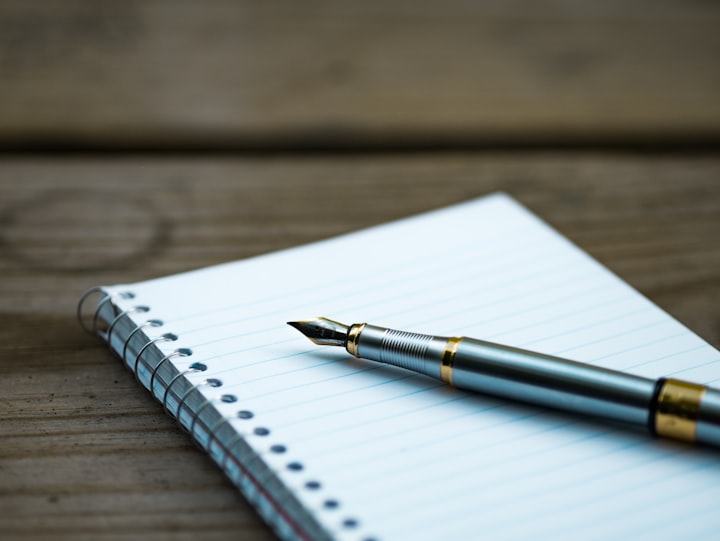Protest Music
For your 4th of July

This Saturday marks the 244th anniversary of our declaration of independence from England. In light of the protests still raging across our country, I thought I would put together an appropriate playlist for such a time that I hope captures the political mood of today while also hearkening back to some classic topics.
Protests and protest music have been around well before the formation of our nation and I’m certain they will continue far into the future. Where there is injustice, protests will flourish and they have been enshrined as integral to our nation in our Bill of Rights. Each person who marches, each person who shares personal stories on social media, each person who has genuine conversations betters this country. We’re not perfect, and this is an important way that we shed light on the imperfections of our nation.
First, we will look at “Yankee Doodle,” the fun ditty that all Americans learn from a young age. While most only know the first two verses and the chorus, there are actually sixteen verses to this song. Originally it was created by a British Army doctor to make fun of what they saw as the stereotypical colonial soldier. During the revolution, the burgeoning/budding Americans owned the song and added the verses to turn it into a snub against the British. It salutes the American soldier and the revered General George Washington.
I also want to talk about the Dixie Chicks, or The Chicks as they now call themselves. Days prior to the US invasion of Iraq in 2003, lead singer Natalie Maines proclaimed to a UK concert hall, “...we don't want this war, this violence, and we're ashamed that the President of the United States is from Texas.” The backlash was immediate and intense. There was a boycott by music stations, picketters at their concerts, and death threats. I support the freedom of speech, but death threats are not included by law for a reason.
They owned their blacklisting though and “Not Ready to Make Nice,” the song that they wrote in response to the backlash, became their only song to go double platinum and win three Grammys. In March 2020, they officially became the best selling female group in the US with 27.5 million record sales. They have a new album coming out in July. I really like the single they released from it: “Gaslighter.” Pre-order it here.
Here’s a look at what I’ll be listening to on this 4th of July:
Gil Scott-Heron: The Revolution Will Not be Televised
Originally written as a response to a spoken word poem that says you may catch the revolution on TV, Scott-Heron instead, using many popular slogans and entertainment icons, tells us what the revolution will not be. He tells us that we need to be active to change. In an interview about the song, he said, ““The first change that takes place is in your mind. You have to change your mind before you change the way you live and the way you move. So when we said that the revolution will not be televised, we’re saying that the thing that’s going to change people is something that no one will ever be able to capture on film. It’ll just be something you see and all of a sudden you realize, I’m on the wrong page, or I’m on the right page but I’m on the wrong note.”
Childish Gambino: This Is America
This striking song about violence in our society took the country by storm when it was released and is still a singularly important cry that reminds us that we cannot hide from the violence in our society. He reminds us that we consume violence as a form of entertainment while also losing people (particularly people of color) to it daily. For those of you who have not seen the video, I recommend you watch it. It is deeply layered with subtle and not so subtle allusions to racism and violence that truly emphasize the poignancy of the song.
Rage Against the Machine: Killing in the Name
Released in November 1992, Rage’s “Killing in the Name” channels the anger felt by many after the four police officers responsible for the beating of Rodney King were acquitted. That acquittal led to the largest riots in the country since the 1960’s. It directly talks about systemic racism in the police with the lines “Some of those that work forces/Are the same that burn crosses.”
Marvin Gaye: What’s Goin’ On
This deceptively upbeat song looks at the state of the world in the early 1970’s and asks us very simply, what’s going on. He doesn’t cry for radical change or provide us with a quick solution. Instead, with his smooth soulful sound, he points out some of key issues of the time like “Picket lines and picket signs/Don't punish me with brutality” and “Oh, but who are they to judge us/Simply 'cause our hair is long.” Motown originally did not understand the song or the album and sat on it for a few months before finally releasing it. It’s success led Motown to allow other artists have more freedom, including Steve Wonder.
Bruce Springsteen: Born in the USA
I couldn’t help myself from adding one of the most widely misunderstood protest songs to the list. This song, about the poor treatment of American veterans after the Vietnam War, has been co-opted by countless politicians who miss its meaning, much to the chagrin of the Boss himself.
Whitney Houston: Star Spangled Banner (live)
While not a protest song, it is the 4th of July and, in light of that, I think having the national anthem sung by one of the most iconic vocalists of our time is appropriate. The fact that she is a woman of color is a bonus! It is the most critically acclaimed rendition of our national anthem with emotionally charged, awe inspiring vocals and a fabulous accompaniment that differs in small, but impactful ways from the standard.
Thelonious Monk: In Walked Bud
Composed in 1947, “In Walked Bud” is a tribute by Monk to fellow jazz pianist Bud Powell. The story goes that the police raided the Savoy Club in 1945 and singled Monk out. Powell jumped to Monk’s defense and allegedly suffered a brain injury at the hands of the police.
Dead Kennedys: Kill the Poor
“Kill the Poor” sarcastically points to the poor as a blemish on society that can be removed for the betterment of the rest. Lyrics like “The sun beams down on a brand new day/No more welfare tax to pay/Unsightly slums gone up in flashing light/Jobless millions whisked away/At last we have more room to play” explain the feelings of a greedy upper class. Despite the years that have passed since the song’s release, our country still doesn’t know what to do with the least fortunate among us and there are those who see poverty as an earned blight instead of a failing of our own society.
Rise Against: Architects
Many of Rise Against songs are protest songs, but I’ve included “Architects” because I feel the mood is ripe once more. The song is about people like Dr King and others who once led movements and then asks us where this generation’s leaders are. “They laid out the blueprints/They poured down a base/Concrete solutions to slow our decay/But when they are gone/Who the fuck's gonna take their place?” Leaders are emerging. Will they be our new architects?
Public Enemy: Fight the Power
Originally conceived for Spike Lee’s Do the Right Thing, “Fight the Power” is a powerful call to action that still resonates today. In the wake of the racially taut 1980’s in New York City, “Fight the Power” commands people of color to exercise their freedoms and take the rights that should already be theirs. It also celebrates blackness and black heroes that are little known to the country at large. “ 'Cause I'm Black and I'm proud/I'm ready and hyped plus I'm amped/Most of my heroes don't appear on no stamps.”
Gossip: Standing in the Way of Control
Sparked by the proposed Federal Marriage Amendment (proposed by the Bush administration to outlaw same-sex marriage), this was Beth Ditto’s way of telling “the administration to fuck off.” However, one of song’s main strengths is how versatile it is. The chorus is a cry not to give up. The battle for our civil rights has been raging ever since the beginning and this song encourages us to stand in the way of those who would restrict them.
The Game featuring Various Artists: Don’t Shoot
The Game gathered ten rappers and four R&B artists to create this reflective cry to action. It focuses on the need for action and emphasizes that it needs to not be a fad. With lyrics like “God ain't put us on the Earth to get murdered, it's murder” and “If excessive force was a drug, then they overdosed,” it blatantly calls out police brutality for what it is. It also calls out those who claim to support the movement with lines like “I'm sure the general population trying to be more active/But when the light finally catches you, you ice challenge.” They want activism to be more of a fad, and with the BLM movement back and stronger than ever, I hope they’re right.
Big Boi feat. Mary J. Blige: Somethin’s Gotta Give (not on Spotify)
Released in 2008, “Somethin’s Gotta Give” was far more political than hip-hop or rap songs were at the time. Big Boi reflects on it in the first verse: “No more messages in the music, record sales down, gas prices up.” The song reflects the desperation that many many felt at that time with imagery that many can relate to: a single mother with a sick child, unemployment, the prison system and more.
SOL Development: No Indictment
Off their 2019 debut album, The Sol of Black Folk, “No Indictment” talks to us about the realities of racism in policing. In “No indictment,” Karega Bailey raps “Death is the sentence your skin is your conviction” and points out how the police aren’t being indicted for their crimes. He ends on a positive note though, hoping for a brighter future, “We got to have unity/Fortify the families and build stronger communities/Educate our children afford ‘em with opportunity/Show 'em how to love black before they reach puberty/Cus knowledge of self give them immunities.” Check out the whole album when you get a chance. SOL Development is a rarity, with songs that are full of soul and allow even those of us who are not black to get a taste of the truth of blackness.
Sam Cooke: A Change is Gonna Come
“A Change is Gonna Come” opens up with the evocative lyrics “I was born by the river in a little tent/Oh and just like the river I've been running ev'r since.” While mild by today’s standards, this classic from 1964 calls to mind the inherent racism in running. Later, he sings about going downtown and “Somebody keep tellin' me don't hang around.” Cooke is optimistic about the future though. He sees a time when change will come, where racism will be a thing of the past.
Various Artists (Queen Latifah, Mary J Blige, TLC, AAliyah): Freedom
This song of empowerment is the theme song from the 1995 movie “Panther.” It features over 60 women of color in the chorus and some of the best known hip-hop, pop and R&B artists of the time. The song speaks to black women directly demanding their freedom. “Sisters rising up and seeing that our time is here/We're taking back what's been ours for years.”
Miguel: How Many (not on Spotify)
Written in the wake of the police shootings of Alton Sterling and Philando Castile, “How many” is a demo that bluntly asks us “how many black lives/how many heartbeats turned into flat lines” before we do something about it? It is a gripping call to action.
Common feat John Legend: Glory
Written for the movie Selma, “Glory” grabs us with its powerful and thoughtful lyrics. Singing of past trials with an understanding that new trials await them, the vocalists dream of a glorious day in the future when their struggle is over. Legend’s soulful voice pulls us in and Common’s raps hold us with lyrics like “Freedom is like religion to us/Justice is juxtapositionin' us.” The accompaniment compliments their voices and further emphasizes the feeling of hope.
Nina Simone: Feeling Good
Written for a British musical about class, race, and power, Simone took the song to new heights. While the song itself does not tell the listener why she feels so good, the history of the song does, victory over oppression. Her haunting (?) voice celebrates “It's a new dawn/It's a new day/It's a new life for me/And I’m feeling good.” It is something that everyone can relate to and aspire to and feel good about.
Kendrick Lamar: Alright
A song that mixes the realities of being black with the optimism of perseverance, Lamar’s upbeat song serves to tell one and all that even with everything stacked against them, it’s going to be alright. The words were chanted during the Black Lives Matter Protests of 2015 and the song was even suggested to be the new Black National Anthem by BET.
Want to listen? Check out the YouTube and Spotify playlists. Please note that the Spotify one is missing two of the songs as noted above.
I hope everyone has a wonderful Independence Day. Be sure to check out the chainmaille shop and remember to exercise your first amendment rights!






Comments
There are no comments for this story
Be the first to respond and start the conversation.